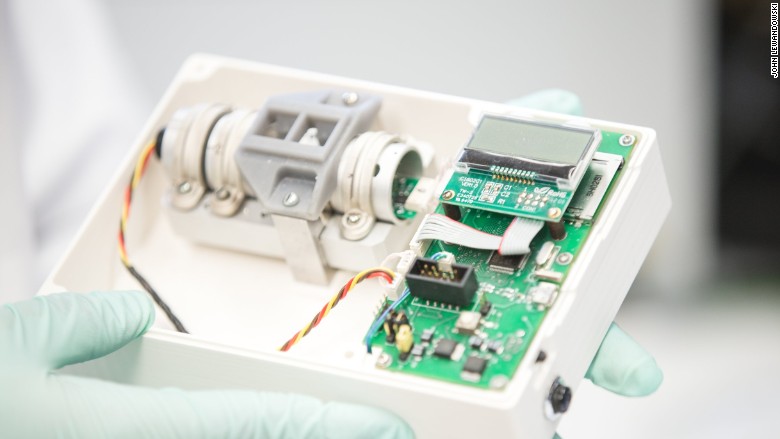For a disease that is not only preventable but also curable, malaria sure does claim more lives than it needs to. The World Health Organization (WHO) puts the death tolls of malaria-related deaths at 438,000 people, the majority of which were in sub-Saharan Africa.
There is a new medical technology innovation by John Lewandowski, a 26-year-old Ph.D. student in Mechanical Engineering at MIT. This medical device is said to be far superior and accurate at diagnosis malaria in its earliest stages.
In an interview with CNNMoney, Lewandowski stated, “Early detection is very important, typically in the first five to seven days before symptoms arise, so that treatment can begin.”
The medical device called RAM (Rapid Assessment of Malaria), said to detect malaria under five seconds from one drop of blood. The motive behind RAM is to diagnose malaria quickly and cheaply.
Must Read: Ugandan Innovators makes a Malaria detection device, that can detect without blood sample
Looking at most countries developing countries in Asia and Africa, the deaths from malaria is the result of late diagnosis, which leads to higher cost of treatment. That is because they primarily rely on microscopic tests, which are, first expensive to acquire (thus are few and in between) and secondly give positive or negative result in the later stages of malaria infection.
On the other hand, RAM is made from low-cost materials, and can accurately diagnose malaria using Magneto-Optical Detection. It can detect malaria as early as a week before the disease symptoms begin manifesting.
The fully assembled model coming complete with a battery-powered plastic box goes for about $100 to $120. Internally it has a small circuit board, some few magnets, and a laser inside. Externally, there is an LCD, an SD card reader, and a disposable plastic cuvette.
Lewandowski founded a company Disease Diagnostic Group, through which RAM are produced and distributed. The company first conducted some clinical trials in India, where they recorded between 93% to 97% accuracy rates.
The company now wants to introduce the device to Nigeria, for trails this summer. They are targeting to do at least 5,000 patients. The date of their entry into Nigeria and the locations they will be visiting are yet to be announced.
Image Credit: CNN Money
Related: Innov8tiv interviews creators of the Matibabu App, detecting malaria without blood samples



